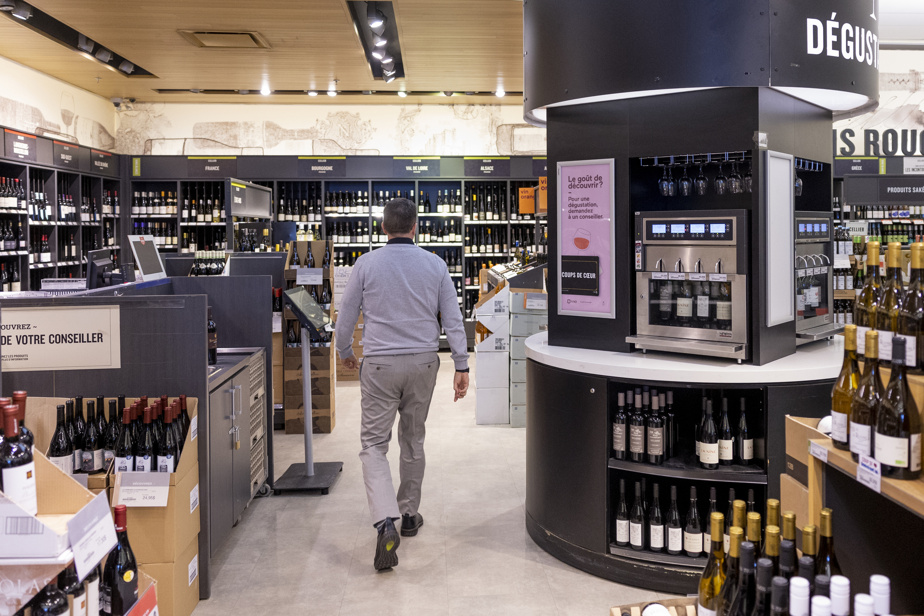On March 16, the Distillerie du St. Laurent placed itself under the protection of the Bankruptcy and Insolvency Act in order to make a proposal to its creditors. The news sent shockwaves. We feel a real surge of sympathy towards our crew and our project. We thank you sincerely.
We have repeated it often since our beginnings in 2015: beyond business objectives, our Distillery is above all a powerful lever for regional development and a source of pride for Bas-Laurentians. Since then, it has also become a gathering place by the river and, we hope, a legacy for future generations.
The increase in the construction costs of our new distillery, resulting from the pandemic context and then the significant increase in interest rates, are among the causes of our precarious financial situation which was difficult, if not impossible, to predict.
But it is the loss of more than half of our points of sale at the SAQ in a few years that really hurts us the most.
The production of spirits pays for the State, not for the craftsmen. In a legislative context where we cannot distribute our products elsewhere than at the SAQ and where the Ministère des Finances collects more money when we sell on our own production sites, it is obvious that there are too many distilleries to ensure profitability for each. Two out of three distilleries are in deficit.
One thing is certain, there are too many Quebec spirits for the space available in SAQ stores. The more products the SAQ has to market, the more the distribution of each of these products decreases. Since the business model requires a very large volume of sales in order to break even, cannibalization stifles all players in the industry.
How did we get there ? Simply because the SAQ departs from its mandate of sound supply management according to the demand of its customers. The issue is political: to survive, the SAQ must remain relevant to Quebec citizens so that its monopoly is not challenged. The SAQ therefore avoids withdrawing non-performing products, that is to say products that sell little, for fear of being identified as the executioner of Quebec distilleries.
However, all food and beverages marketed in Quebec are subject to the law of supply and demand. Even the wines, beers and ready-to-drink products sold by the SAQ are subject to sound supply management. Only one category of products escapes the universal law of commerce: Quebec spirits.
Thus, the only way for distilleries to maintain a certain distribution threshold is to launch as many products as quickly as possible, regardless of their potential. This short-term individual survival solution jeopardizes the entire industry in the long term.
A state monopoly cannot ignore its mission to apply the highest standards of management to the detriment of its suppliers on whom a link of economic dependence is imposed. Distilleries deserve more distribution of their products if they are more in demand than their competitors. Customers, who cannot buy spirits from other retailers, deserve to easily find the products they want to buy at the SAQ. It is fair and equitable. It is healthy and necessary.
That some of its products are pulled from the shelves because customers don’t want them is hard on the ego, but understandable. Having to close its doors because the state monopoly wants to preserve its image and reputation by letting industry players cannibalize each other is unacceptable. Yet that is what is happening to us right now.
If François Legault abolished his local purchase tax on sales at manufacturing sites, many distilleries would benefit from it and this would release the pressure on the shelves of the SAQ. The other Canadian provinces already consider the production of spirits as a true vector of economic and tourism development, culinary identity and food sovereignty rather than a simple source of taxation.
The surtax levied on spirits sold on the premises of manufacture has already been totally or partially eliminated elsewhere in Canada, in full compliance with international trade agreements. Mr. Legault likes to compare himself to other provinces: it should be noted that Quebec is dead last in this regard.
It is likely that the SAQ will respond to this letter by stating that it has never marketed so many spirits from here. Exactly, the problem is there. There is not enough space for all Quebec spirits on the shelves of the SAQ. It is imperative that the SAQ put its customers at the center of its decisions and that it establish sound supply management based on average sales per outlet. Not in two years, immediately.

